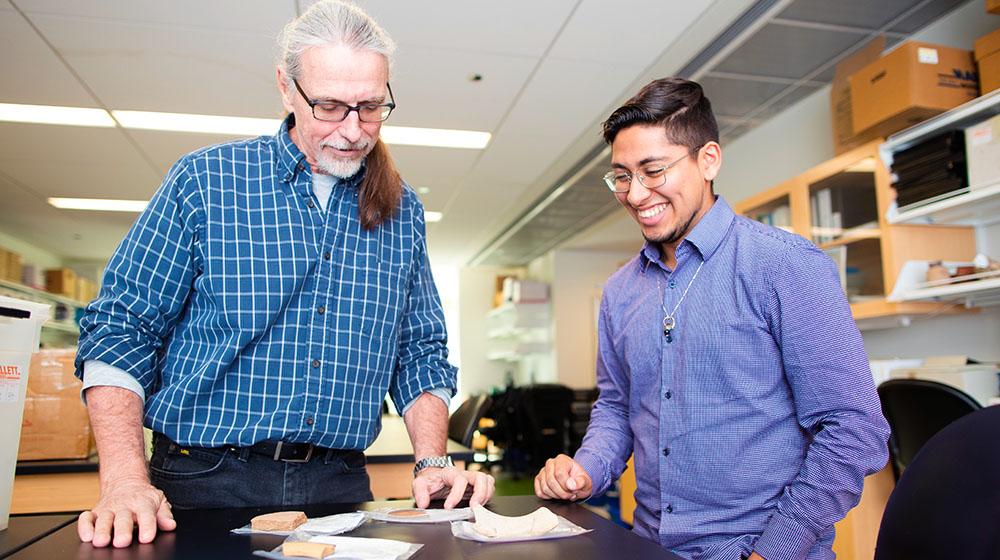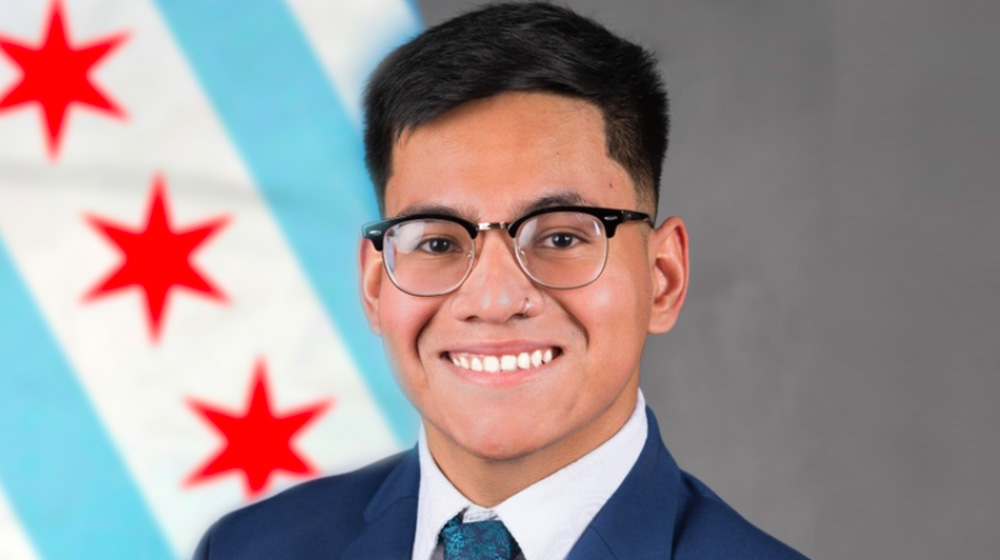
Engaged Learning
Engaged Learning
The College of Arts and Sciences is proud to support Loyola University Chicago's mission of advancing experiential, community-engaged learning and pedagogy through Engaged Learning courses and opportunities. As part of the University Core Curriculum, students are required to explore various forms of learning outside of the classroom throughout their time at the university. By embedding opportunities to explore and reflect upon the many forms of experiential learning as part of their academic coursework, students gain structured, hands-on experience in their area of study and future careers.
By The Numbers
565
565 engaged learning courses offered through CAS during the '21 - '22 school year
183
183 faculty offered engaged learning courses in CAS during the '21 - '22 school year
2,498
2,498 students participated in CAS engaged learning courses during the '21 - '22 school year
Undergraduate Research
Undergraduate research is a high-impact learning experience for students outside of the traditional classroom environment. Students conduct research across their discipline in classrooms, labs, archives, and communities, whether through formal coursework, independent study, and/or one of Loyola's Undergraduate Research Opportunities (LUROP) 14 funded research fellowship opportunities.
For more information on how to get involved in undergraduate research, including guidance on how to find a mentor, join a research project, apply to participate, and locate funding, the Office of Undergraduate Research offers workshops, presentations, and even classes to develop and enrich the research experience for all undergraduate students at Loyola.
Academic Internship
Academic internships offer experiential learning that integrates knowledge and theory learned in the classroom with practical application and skill development in a professional setting. With a campus located in the heart of Chicago, the potential internships available are virtually endless. With community partner employers from around Chicago and beyond as co-educators, students in academic internship courses engage in real world professional experiences, allowing students to “learn by doing” and reflect upon that learning.
An academic internship at Loyola connects the internship experience to an academic course in the student’s major or an area of interest. The College of Arts and Sciences offers over 30 academic internship courses for undergraduate students. Learn more about pursuing an academic internship with the Center for Engaged Learning, Teaching and Scholarship (CELTS) and by reaching out to each department's internship contact.
Service Learning
Service learning courses connect classroom content to community action by inviting students and faculty to take their education out into the world. Students can partner, volunteer, and collaborate with one of Loyola's 800+ community partner organizations to apply course concepts to real-world problems. Whether sharing discipline-specific knowledge with the broader community, performing research on pressing social issues, or completing projects that advance community-defined priorities, students in service learning classes learn by doing AND seeing how that learning intersects with the larger world.
For more information on service learning, including how to get involved, visit the Center for Engaged Learning, Teaching, and Scholarship (CELTS).
Field Work
Field work courses take experiential learning off-campus. Students can apply their studies and gain real-world, professional experience through partnerships with professional organizations related to their field of study, educational goals, and/or career and vocational aspirations. Through their clinical placement or practicum, students gain valuable feedback against learning objectives under the supervision of a professional with expertise in their field of study or desired career path. Students also have the opportunity to reflect on their experiential learning through structured assignments and a final synthesis project, whether that brings their experience and gained knowledge to life.
For more information on field work, including courses offered and course requirements, visit the Center for Engaged Learning, Teaching, and Scholarship (CELTS).
Performance
The transformative power of public performance enables students to engage with and demonstrate what they have learned both with and in front of their classmates, instructors, and spectators. Students also obtain creative skills through the experience of participating in the creation of a performative art work from start-to-finish. After their performance has been completed, students also reflect on their work through the perspective of mission-driven learning objectives to encourage deeper engagement with their gained knowledge.
For more information on performance, visit the Department of Fine and Performing Arts.


Undergraduate Research
Learning Leadership in the Lab and Beyond
Professor James LoDolce's Molecular Biology Lab empowers students to lead their own research projects with industry partners and independently navigate the ins-and-outs of the scientific method, how to communicate like a scientist, and the importance of failure in achieving success.
Read more
Field Work
Keys to the Past & Future
Nicholas Puente (Anthropology, BA '19) discovered shards of volcanic glass while participating in field work in Mexico that revealed key insight into ancient and modern power structures and guided his decision to pursue further studies.
Read more
Academic Internship
Community-Based Career Development
Bernardo Gomez (Political Science and Global Studies, BA '23) participated in an academic internship with the City of Chicago's Community Safety Coordination Center to support community-based violence prevention efforts and learn the ropes of public service and city government as a junior.
Read more
CELTS
At Loyola University Chicago, engaging in the community and research outside the classroom is part of the curriculum. The Center for Engaged Learning, Teaching, and Scholarship (CELTS) facilitates experiential learning at the intersection of faculty, community partners, and students. CELTS facilitates community-based, high-impact programs, training, and scholarship development to support students' completion of the Engaged Learning requirement learning, reflective practice and learning in the Ignatian tradition.
Learn More